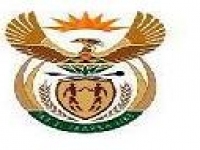SKA Reception at the High Commission of the Republic of South Africa
General Info

Start date:2011-06-16
End date:
On June 16, the High Commissioner of the Republic of South Africa, His Excellency Dr Zola Skweyiya is hosting a reception to present South Africa's bid to host the Square Kilometre Array (SKA), the world’s largest radio telescope, with a talk by Dr Bernie Fanaroff, Project Director of the SKA South Africa.
On June 16 at the South Africa House in London, Dr Bernie Fanaroff will highlight the exciting developments in South African astronomy and update on progress for the SKA precursor telescopes (Kat-7 and MeerKAT). He will set out how the government's sustained investment in education and training for SKA can be a catalyst in building a dynamic knowledge economy in South Africa.
After gaining his PhD from Cambridge University, Dr Fanaroff has had a distinguished career, serving in a senior capacity in the Mandela government and now leading the South African SKA bid
For more information, go to http://www.ska.ac.za/
On June 16 at the South Africa House in London, Dr Bernie Fanaroff will highlight the exciting developments in South African astronomy and update on progress for the SKA precursor telescopes (Kat-7 and MeerKAT). He will set out how the government's sustained investment in education and training for SKA can be a catalyst in building a dynamic knowledge economy in South Africa.
The SKA is an extremely ambitious global astronomy project and an unprecedented IT and engineering challenge. South Africa is one of the two countries bidding to host the SKA. South Africa's core site is in the Northern Cape region with outstations in Namibia, Botswana, Ghana, Kenya, Madagascar, Mauritius, Mozambique and Zambia; it is therefore a truly pan-African bid and has been endorsed by the African Union.
To appreciate the scale of the Square Kilometre Array:
- The SKA will be 50 times more powerful and with survey speeds 10,000 times faster than present day radio telescopes, answering some of the most fundamental questions that remain about the origin, nature and evolution of the universe.
- When fully constructed in 2025, each of the 3,000 satellite dishes will collect data continuously, generating nine million signals at once. Supercomputers capable of processing one 'exaflop' (1,000 million billion operations) per second will be needed, well beyond existing computing capacity.
- Power requirements for the SKA will deliver new developments in renewable energy generation and energy saving technologies. These infrastructure and engineering challenges are being tackled by collaboration between international teams of researchers from academia and industry.
The country selected to host the SKA will get a huge boost for local research and innovation, attracting and retaining world-class talent and providing an iconic project to attract young people to science and engineering studies.
Event by invitation only.
Please contact us at info@astroafricaeu.com is you wish to attend this event or fill in the request registration form below.
18:00-20:00: Presentation by Dr Bernie Fanaroff, followed by question and answer session.
The reception is designed for the scientific community, policy makers, research agencies, universities, industry and non-government organisations. It will also be of interest to anyone wishing to learn more about concrete opportunities for research collaboration with South Africa scientists and science in the field of astronomy.
Venue: South Africa House, Trafalgar Square,
London WC2N 5DP
Date: Thursday, 16th June 2011
Time: 18h00 – 20h00
Light refreshments will be served
Coordination is provided by ISC Intelligence in Science as one of the initiators of AERAP, together with the South African Mission to the EU.
Contact: info@aerap.org or +32 2 8888 111

 Search the Website
Search the Website